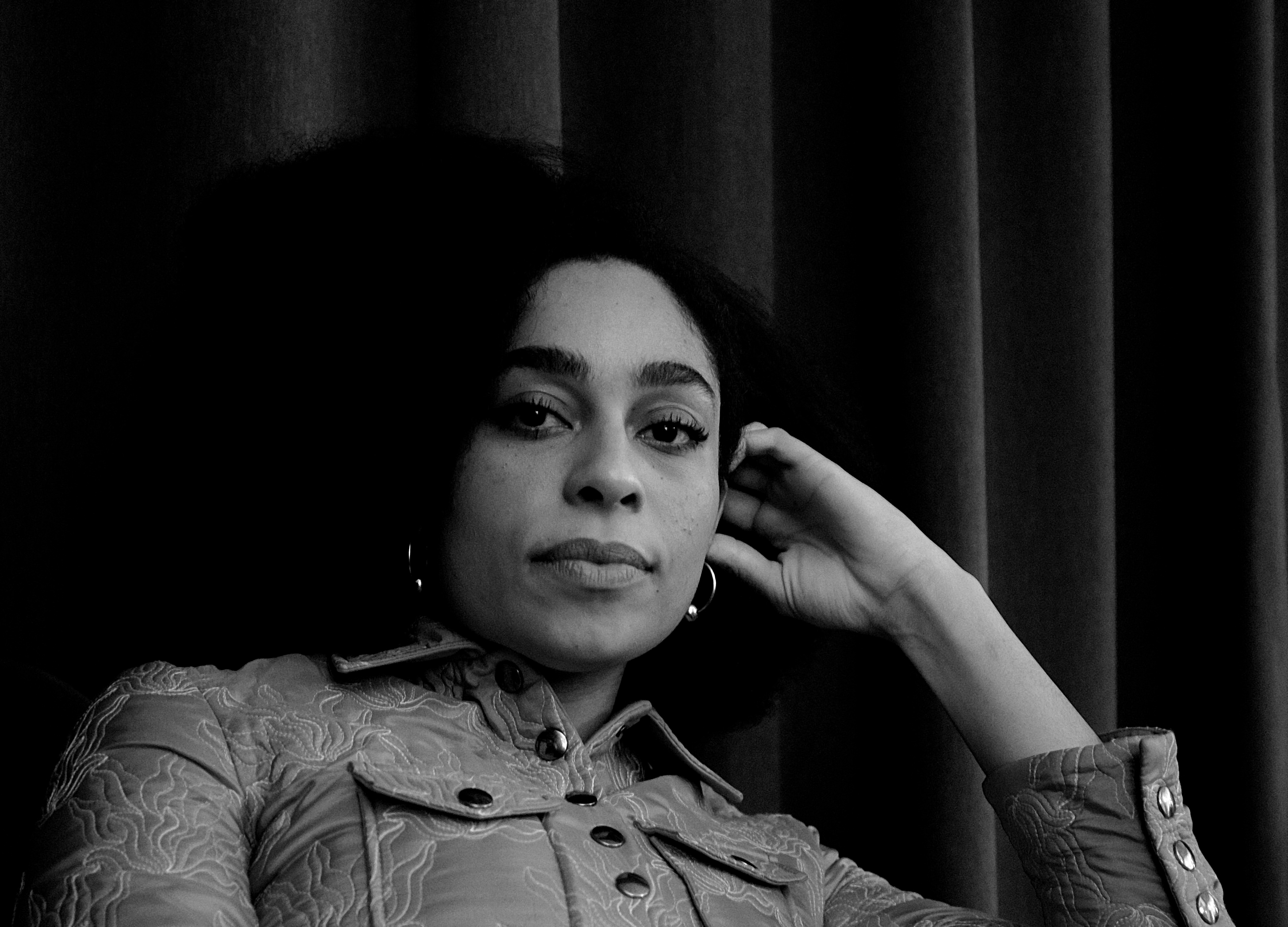Foto-© Julia Szymik
Treffen sich zwei alte Seelen und quatschen über musikalische Einflüsse und Früherziehung, James Bond und die Brit Awards. Als Anmerkung vorneweg, als dieses Interview vorbereitet wurde, war die Nominierung für den Brit Award noch relativ frisch und noch nicht mal eine Woche später, das Interview so halb abgetippt, ist es keine Nominierung mehr, sondern ein Gewinn. Mittlerweile kam auch noch Platz 1 in der BBC Sound of 2020 Shortlist dazu. Da gratulieren wir doch gerne ein zweites Mal! Dass der Jazz aktuell seinen Einzug bei den coolen Kids feiert, wurde über das Jahr immer deutlicher und Celeste trägt ihren Teil dazu bei. Sie kann alle in ihren Bann ziehen und für sich begeistern. Ich würde lügen, wenn ich jetzt schreibe, dass ich seit dem Interview nicht auch ein großer Fan bin. Klar also auch, warum wir sie als ersten Act in unserer diesjährigen Bands To Watch-Reihe vorstellen – Vorhang auf für Celeste:
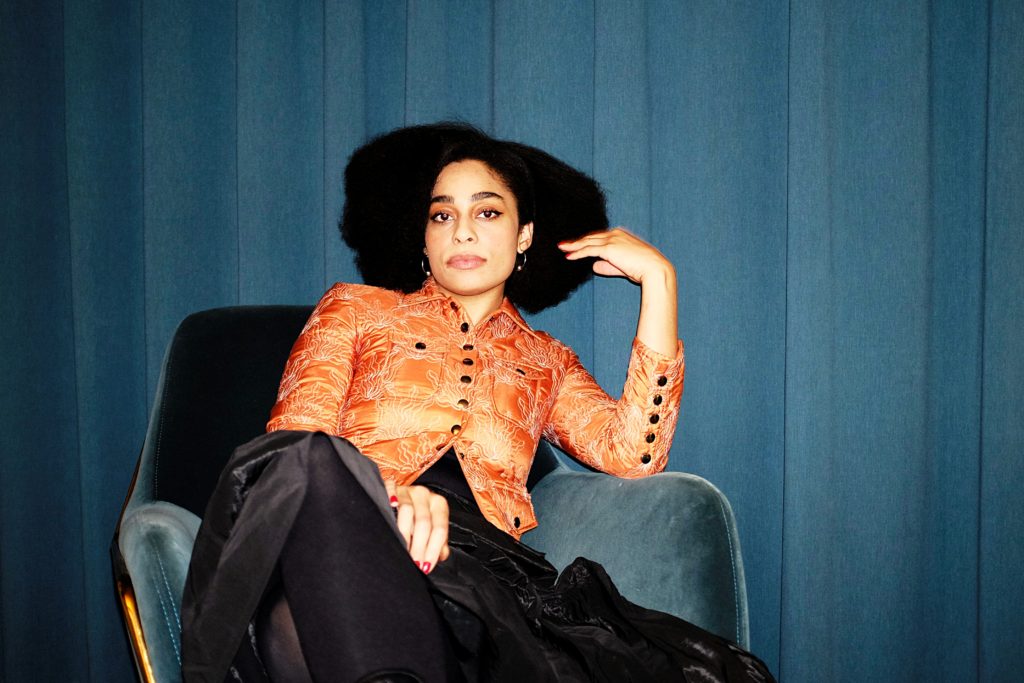
First of all congratulations to your Brit Award nomination! How did you find out about that?
Thank you very much! Well, I was very pleased when I heard and I had no idea I was in the running for the short list. The people around me didn’t want to tell me, until the case I would end up in the top 3 or whatever. So I was playing a show in Montpellier for Radio Nova. Sudan Archives was playing there as well and literally when I was dressed to go on stage, one of my managers bursted into my room and was like „by the way you’re in the top 3 for the Brits Rising Star Awards“. It used to be the Critics Choice Award. To me, I had no idea and it was really cool. Now, I guess I’m just awaiting the final result. At points, I was quite nervous, because I would like to have it, but we will just see.
Have you already prepared a speech?
I don’t think, I’ll have to do a speech. Last year I got to attend the Brits. Sam Fender won it last year and they interviewed him. He didn’t have to do an acceptance speech. This year, you perform on the TV if you win. I would really love to do that, because I probably perform Strange.
Do you feel pressure since the nomination?
It’s really helpful to get certain people to recognize you or at least to pay a little more attention, because there’s so much music out at the moment and I think things like this help you to get a little more extra coverage. For me it’s about making music and the things I like and if those things help me to do it, I am grateful for that.
Finger’s crossed! I’ve read in your biography, that you listend to a lot of classics when you were younger. I think we have that in common, because my parents made me listen to the classics. People tell me, I’m an old soul, just because I’m more into the things older people do and not into the stuff, people in my age are doing. That’s why I thought you’re an old soul as well.
People say that a lot to me, even when I was in a younger age. There’s something definitely from the people you grew up with and around you. I don’t know about you, but I have half siblings, but didn’t grow up with them. So I’m really an only child. From a young age, the people around me were adults, like 50 years older than me. Naturally you grow up being quite mature in your head at a very young age.
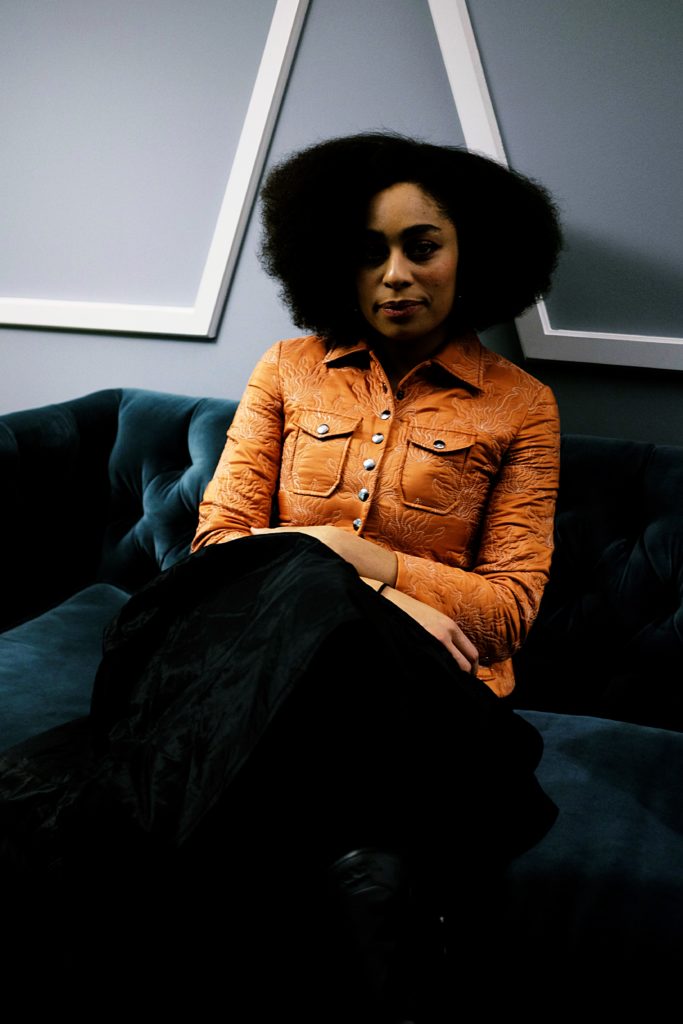
With the music, especially in the era I grew up, you are 23, I’m 25. We didn’t have the internet and streaming, when we were 5 years old or whatever, you listen to the music your parents and grandparents are listening to and playing to you, because you have no money to buy new music. My mother really brought me up and if my grandparents haven’t been around to help her, it would have been difficult for her. They looked after me a lot and we spent a lot of time as a family. My nana, my mum and even my uncle in the same house. Definitely for the first few years of my life we lived with them and it was a constant education from a generation, which is so far away from where we are now. There’s a part of me, which is still very in touch with the romance of how I was influenced by my grandparents. They were living in the sixties and dressing like this. My nan was a mod in the sixties. All her dresses had colors and were buttoned down. She had a fringe and in all the pictures she had an eyeliner. I naturally grow up with the love for those things. Swinging sixties is another era. It’s important to reject that culture and accept that it’s a part of you.
I’m very thankful for my mother that she brought me to this music, because she kind of forced me listen to music. In that moment, I wasn’t keen on listening to the music she loved, like The Police or Sting. For example my first concert was Sting and I was around six years old and didn’t want to go there, but in the end and now I’m very happy that this was my first concert. It’s a really cool first concert and a good story to tell, that I thought the concert was boring.
Me too. It’s funny, when I pick up something that’s from the seventies or the eighties my mom tells me that they hated this when they were younger.

Talking about your music now. A lot of female artists, especially from the UK tend to do this jazzy music like Joy Crookes or Mathilda Homer. I asked myself why, because a couple of months ago I realised, that jazz might have a comeback and become modern and cool. Can you explain this to yourself or do you know why?
For me, speaking from my own perspective, I think, me singing in a jazzing soulful style, really came from the fact that my voice fitted singing in that genre. Because my style and how I learned to sing came from listening to those singers. I can only guess, people in a similar age to me had a similar upbringing to music and had the same thing, that it was just natural for them. But I do think that it is also the thing in England where it’s quite a natural hub for that music. In the same way punk is having a revival. Jazz is a home in a way. Even though jazz sorted to come from the deep south, from blues, from work songs. Primarily from an African state of music. The British people always sort of liked being a fan of that. At the moment, the jazz scene is really thriving in the UK. If you look at Yussef Dayes, he had various bands. That hasn’t just happened in a few years, it was longer than that. All these people have been perfecting their craft two to ten years and now they are on their peek and want to show people. As a singer this inspires you and filters what you want to do and present the world. I guess as well there has been big female jazz influences. In the UK, the biggest jazz singers we had from the skills are Adele and Amy Winehouse. That had or has an influence on more than one generation. Even Lily Allen, who is more tongue and cheaky, but she came from listening to ska and reggae, jazz, soul and funk. All of that stuff and we are not in the same age, but this is the stuff I grew up with and was listening to. Coming from a mixed background and my mum being from the time she was from, listening to The Gap Band. She was a teenager in the seventies and eighties. She was also listening to disco, but then she would also listen to The Clash. All of those different things, where Britain was at in the seventies or eighties, had such a big influence on the music and culture.
I don’t know whether the people younger than me have had the exposure to that. I think we can be very lucky to have this closeness to those times and feeling this a little bit more.
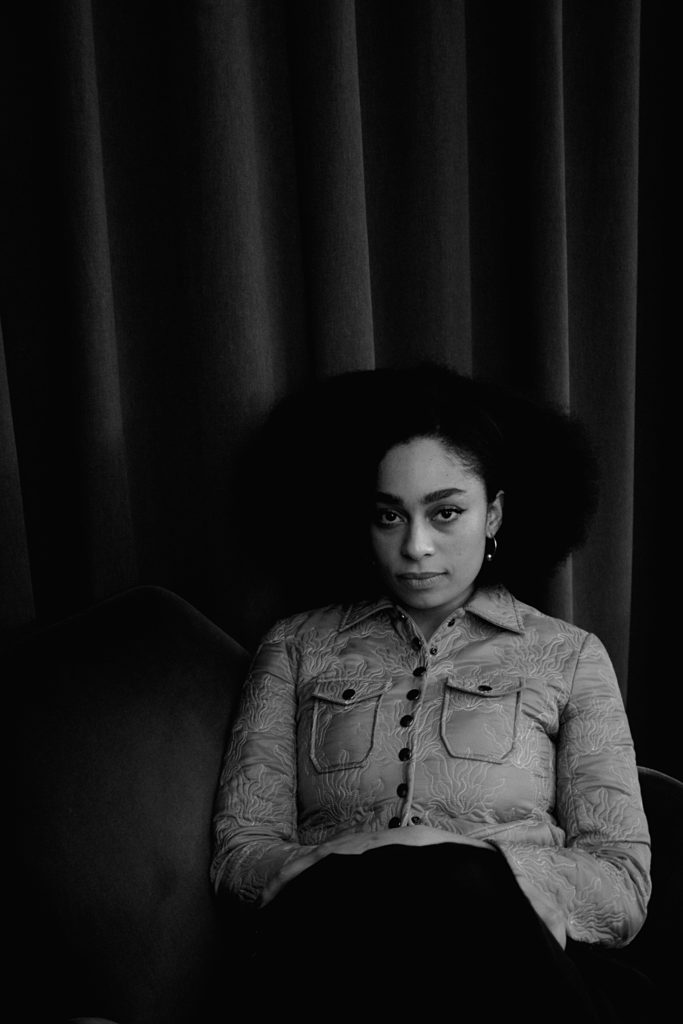
That’s really interesting and explains it to me. In the last weeks, I listend a lot to your song Lately. I can relate to the lyrics and wanted to make sure, if I got it right. What is the song about?
I’m glad you can relate to it – that’s one of my favorite songs I’ve written. That song is about the trouble situations of every day life or normal existence. Whether it’s struggling with money or depression, arguing with your partner, but then finding a romanticism in that. Because it was really an observation of my own family life sort of the environment I’ve been and growing up. I felt like a lot of people are in relationships that really are part of our existence and you wouldn’t stay in it, if there’s no romance in it. I didn’t grow up with money and my family still doesn’t have money, like I become quite lucky to earn some money from music in the last year. It’s really been a gift to me. Sometimes you don’t have the money to buy the food you want or pay the bill. As a family you have to be closer that that. You just can’t run away and go on holiday, because all those things. Lately is about that. Telling the truth.
„Lately I’ve been tied up“ is a phrase I hear people say to one another. It was always in my head.
„Lately I’ve been lying“ is like lying to myself how I was feeling in that moment.
„Lately I’ve been useless“. You’re never useless as a human being. There’s always something you can do. In those times you feel like that. You just want to lay in your bed and not get out for a day.
All those things come together and that was exactly how I was living and feeling at that time. It just came out of a conversation. When I started writing the song I just wrote down how I was feeling. It’s about how am I gonna sort up my life, how am I gonna move out and live by myself and how am I gonna do the things I want to do. It was just honest.
This song always makes me think every time I listen to it!
Exactly. When you have those moments of doubts, remind yourself every week is different. I learned this while I was younger. Every time I feel a little bit down, I tell myself this. Music helped me to clean my head.
Oh yes! You’re right! Did you see that comment on YouTube that said, the song might be good for a James Bond film? There’s actually a new James Bond film coming up and maybe you should give them a call and pitch Lately to them.
I didn’t see the comment. Well it might be too soon for me to be considered for a James Bond film. But it’s something I would love to write!
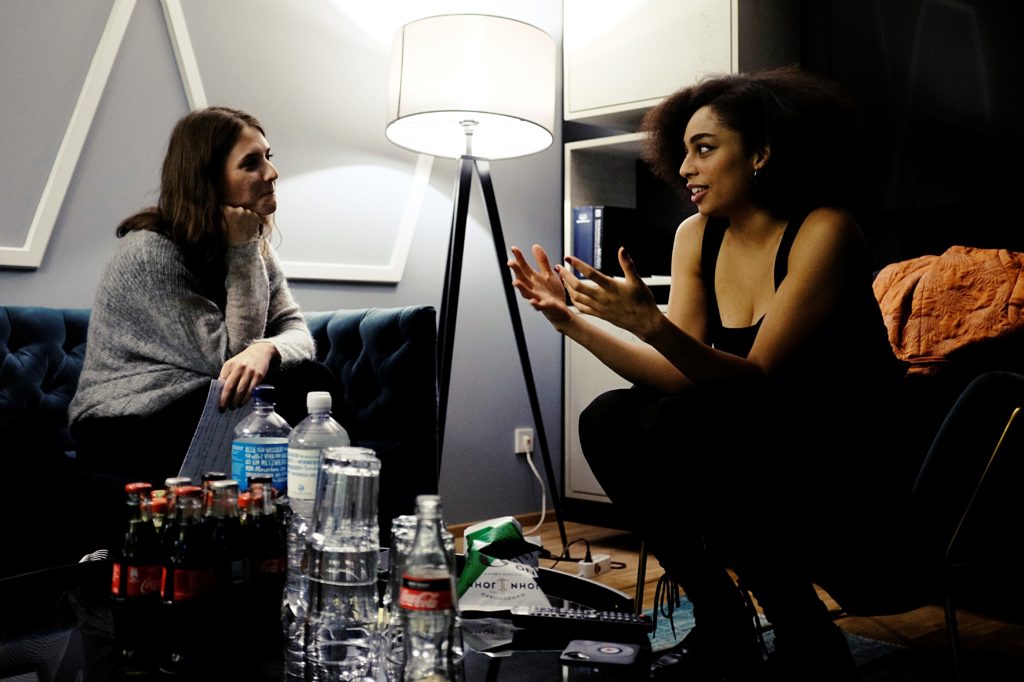
Because it’s always so dramatic and big and kind of sexy.
Definitely. The composers inspire me, because they were always rich in the string section. I really like that and it’s a blend of classical, soul and jazz. There are drama and theatrical elements, which I really love.
I’ve read in your press texts, that you write your songs with other people. What is important for you about the others with whom you write songs?
For me, the ultimately collaborative experience is a conversation. Some people find it really easy to sit by themselves and write a whole song. I’ve had that just a few times. If you have a chemistry in a room with someone and the conversational flow is easy that can translate quite well writing a song. For me having someone that I feel comfortable in the room with and telling stories is important. Some people are just very intuitive and sensitive, how I might be felling, without me saying much. So I might go in and be a little bit quite that day and they play just some chords and it completely resembles how you feel inside. Randomly these lyrics and melodies come to you. This person just read you and your feelings and emotions on that day.
I don’t play instruments, I just began to try to play the piano more and more. When I’m by myself I’ll teach myself things. One of the primary things is that they have to play chords, but more important is the conversation. That’s how I write songs.
Thanks a lot for your time and the interview!
Celeste Tour:
05.05. Stadtgarten, Köln
06.05. Kranhalle, München
08.05. Pitchfork Festival, Berlin










